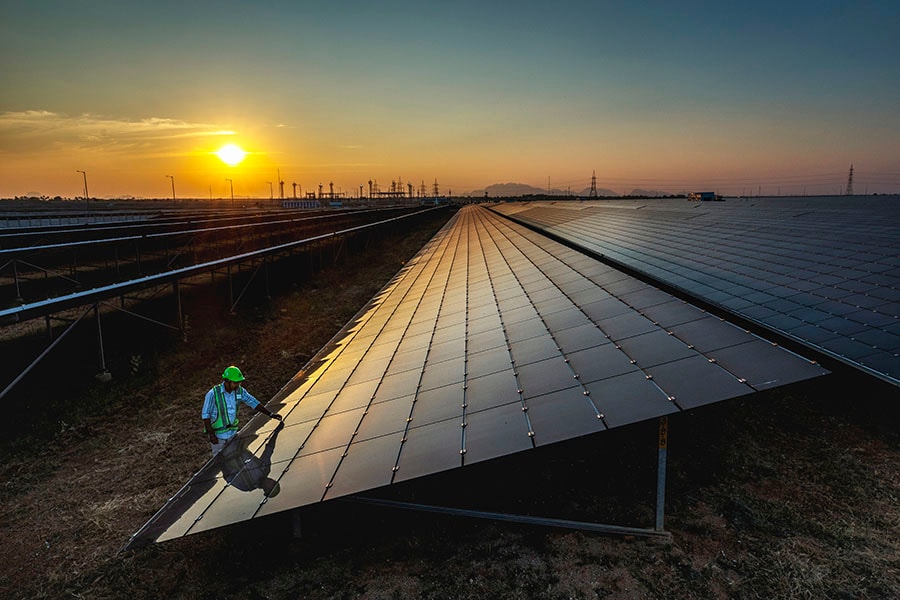
Clean Power: At 7 GW, India installs highest renewable energy sources in March
Total renewable energy installation reached 18.5 GW in FY24, 103 GW under construction
 (File) Pavagada solar park in Karnataka state that is one of India's biggest solar energy producers. Image: Jonas Gratzer/LightRocket via Getty Images
(File) Pavagada solar park in Karnataka state that is one of India's biggest solar energy producers. Image: Jonas Gratzer/LightRocket via Getty Images
India’s ambition to reduce its reliance on fossil fuels for electricity production and boost clean energy production is picking up as renewable energy installation reaches new heights. According to the latest data by Rystad Energy, India installed a record 7.1 gigawatts (GW) capacity renewable energy sources in March. With this, the annual renewable energy installation reached 18.5 GW in FY24.
The primary driver of India’s clean energy is solar installation, contributing about 40 percent to the total renewable energy installation in 2023. In March alone, solar installation was over 6.2 GW. The Ministry of Power states that renewable energy sources, including solar, wind, hydro, and other clean energy, with a capacity of 103 GW are under construction.
Despite promising growth, a clean energy-based power grid remains challenging as India heavily relies on fossil fuels. In 2023, total electricity generation in India was 428 MW, and about 56 percent was produced from fossil fuels such as coal, gas, and diesel. The government has set a target of generating 500 GW of electricity from renewable energy sources by 2032, which requires 30 GW capacity annual installation. A consistent and robust increase in clean energy installation is imperative to meet the target of 500 GW.
“Despite ambitious climate goals to reduce carbon dioxide emissions, achieving them is only achievable if the country maintains the fervour witnessed in recent months. However, critical challenges persist. Like, ensuring grid stability alongside the higher integration costs that come with introducing more renewable capacity, says Rohit Pradeep Patel, vice president of renewables and power research at Rystad Energy.








